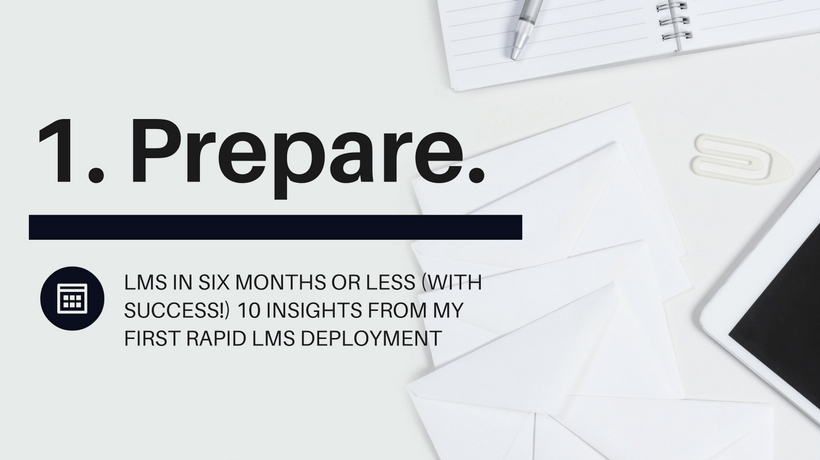Tips To Make Your Final Buying Decision
Shopping can sometimes be an intimidating experience. Clothes you can try for style and fit in a private space in front of the mirror. Most shops will let you try a sample of food to have a taste before you pay. However, even if with software you get a free trial that still won’t give you the whole picture. Taking out your credit card can feel like that awkward part of a job interview. The bit where they ask you where you see yourself in 5 years. After which they proceed to ask if you have any questions for them. Like a deer in headlights. Where do you even start? Especially if you only have room in your busy schedule for a handful of pointed questions for the LMS vendor. Here are some suggestions.
7 Questions To Ask Learning Management System Vendors
1. What’s Included In The Pricing Plan?
The concept behind price packs is to promote affordability. But sometimes, the configurations are so complex they feel like a foreign language. Your LMS vendor will likely have a recommended price point or tier. Find out what features it includes and compare it to your own list of desired deliverables. Key factors include amount of users, compatible OS and tiers of privacy. Find out if you can distinguish between departments, access levels and admin rights. Don’t hesitate to ask for a detailed expense sheet that outlines everything which is included in the package and the payment terms/frequency.
2. Which Support Services Are Available?
Open-source software has tech support limits because they’re largely self-service DIY systems. As a rule, a cloud-based LMS has far more dedicated customer care. But every commercial LMS is a mix of different systems, so confirm what their support policy consists of. Ask the LMS vendor if they have bots on hand or techies on call? How detailed is their FAQ? What’s their response time when you raise an issue? Do they offer customer assistance in languages other than English? More importantly, how do they handle your complaints or issues? For example, is the tech department knowledgeable and able to articulate the solution in terms you actually understand?
3. How Frequently Do You Update The Software?
The previous queries were more practical in nature. Now you want to dig into the technical aspects. Some LMS come with a pre-set number of updates. Most likely you will have to pay for upgrades past the cap. Others will make you pay for newer versions from the get-go. You’ll want to know if they have a planned schedule for updates and how often they release a new LMS. You may end up buying a new plug-in every year. As you understand that is something you want to know from the start. Also, ask about current trends and technologies so you can see if they are at the cutting edge of LMS processes.
4. Can It Keep Up With Trainees On The Go?
Mobile optimization is something we take for granted because it’s such an essential feature. But for some software companies ‘adding an app’ is a cash cow. You want to clarify whether mobile capacity is built in or has to be paid for separately. You also need to be clear whether their smartphone approach is responsive, adaptive or native. Ask them before you state your preference. Because once you do, there’s nothing to stop them from saying what you want to hear. Whether it’s true or not.
5. How Deep Are The Customization Options?
Canned software might let you upload your logo, change the background, and tweak the palette. Maybe you can design your own avatar, or chart individual training paths. But other LMS solutions let you create custom reports and build individual training packs for different employees. Some systems have a library of features you can drag-and-drop to pick-and-choose. Others let you import external elements and assemble them from scratch. Confirm what their content creation toolkit has to offer, and how much technical skill you need to run it.
6. Does It Cover Diversity In Learning?
In the offline space, diversity is generally associated with gender, race, and age. In the online training space, it may stretch to cover the differently abled or learners with varying educational backgrounds. Some of the diversity tools you might need are closed captions, adjustable fonts or monochrome scales (for color-blind users). It can also include training formats for different learning modes i.e. visual, textual, aural or manual.
7. What Is The Real Cost?
One of the biggest mistakes you can make – especially with LMS selection – is to focus excessively on the list price. It often omits taxes, add-ons, maintenance fees and licenses/permits. Ask if the LMS needs installation or requires training, whether these are provided or billed separately. Can they give you a list of clients; both of existing and prior clients? Ask current clients what their experience is with the LMS. Ask former clients why they are no longer using the product. You can also read online reviews to get a better understanding of the LMS’ UX and CX.
Conclusion
Buying LMS is a massive decision. You want to be able to make the right decision straight away. After all, whatever that LMS does for your organization – good or bad – it will forever be on your head and based on your call. So which last-minute verification queries can you direct towards your vendor? Confirm the T&Cs covered by your price package, so you know whether you need to step it up or down. Ask about available support services, update frequency and portability. Look into customization features and multi-media tools. Double-check any hidden costs, add-on fees and implementation plans. Finally, ask if they can put you in touch with current and past clients. It helps to get a clear picture by hearing of experiences from the source.
Streamline your research efforts by using a LMS directory to do a preliminary vendor vetting and compare your top choices. You’ll also find reviews and ratings to help you cross learning management system vendors off the list or add new ones you’ve skipped over, as well as evaluate all their pricing options and support services.







